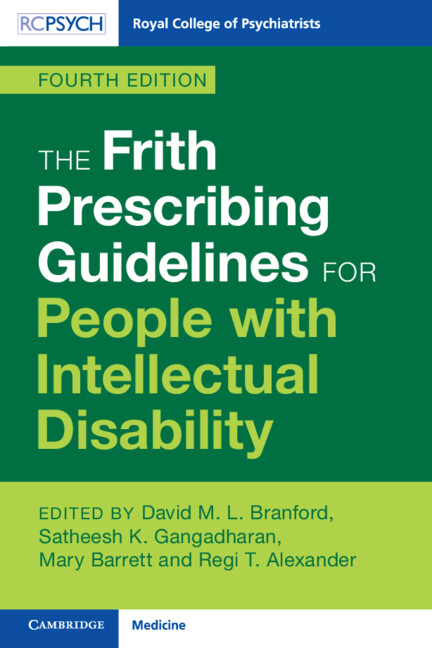
It’s 4pm on a Friday. The phones are ringing. ‘Somebody must do something!’ ‘The situation is out of control’. ‘Someone will get hurt’! ‘If something doesn’t happen soon, we will have to admit her to hospital’! A familiar scenario for many clinicians working in the field of intellectual disabilities and where the outcome may well be the prescribing of a psychotropic medication.
People with intellectual disability make up about 2% of the general population. Some of them can present with behaviours that challenge the system around them. These challenges may sometimes be due to underlying psychiatric conditions. Indeed, those with intellectual disability are two to three times more likely than those without, to have major mental illnesses. Equally, the behaviour that challenges may well be not due to any mental illness at all, but a poorly recognised environmental or physical health problem. Whatever be the underlying cause, as a group, they are much more likely to be prescribed psychotropic medication, a practice that is often not rigorous or well monitored; this in turn has raised serious public health questions.
For several years, this was a field where there was limited prescribing guidance and even when that was available, little clarity on what to prescribe, how much and for how long. It was to address this that just under 20 years ago, the late Professor Sab Bhaumik, a pioneering psychiatrist whose passion lit up this field and Dr Dave Branford, a specialist mental health pharmacist, edited the first edition of the Frith Prescribing Guidelines. Through editions 2 and 3, the book quickly became, arguably, a ‘must have’ for many a practising clinician. The Frith Prescribing Guidelines for People with an Intellectual Disability, 4th Edition is now being published in November 2024. This fully updated edition covers in pragmatic detail, the specifics of how to diagnose, investigate and treat mental disorders and behaviours that challenge. With up-to-date reviews of the evidence base, it has contributions from practising psychiatrists, pharmacists, nurses, other professionals, and experts by experience.
While in recent years there have been guidelines from the National Institute for Health and Care Excellence (NICE) in place to rigorously address the broad treatment principles and approaches for people with intellectual disabilities, the Frith guidelines remain, to date, the only systematically developed, pragmatic treatment guidance for prescribers in everyday clinical situations. The three editors of the previous edition(s), Dr David Branford, Professor Satheesh Gangadharan and Dr Mary Barrett have been joined by Professor Regi Alexander in this 4th edition. The key changes in this edition include the grading of evidence that underpins the prescribing guidelines for each condition, the involvement of service users and their families in the planned structure and authorship of the chapters, an emphasis on clinical scenarios and case examples, advice on how long to treat with medication and tips on how to withdraw medication. The last two are particularly important because of an increasing and timely interest in stopping over medication in people with intellectual disability and autistic people, the STOMP programme run by NHS England. Overall, the book promises to be a useful resource for general practitioners, psychiatrists, doctors in training, non-medical prescribers and anyone who has an interest in the safe and rational prescribing of psychotropic medication for an extremely vulnerable patient group.

Title: The Frith Prescribing Guidelines for People with Intellectual Disability
Authors: David M. L. Branford, Satheesh K. Gangadharan, Mary Barrett and Regi T. Alexander
ISBN: 9781009430722
Latest Comments
Have your say!